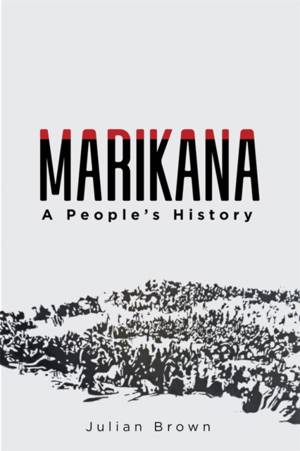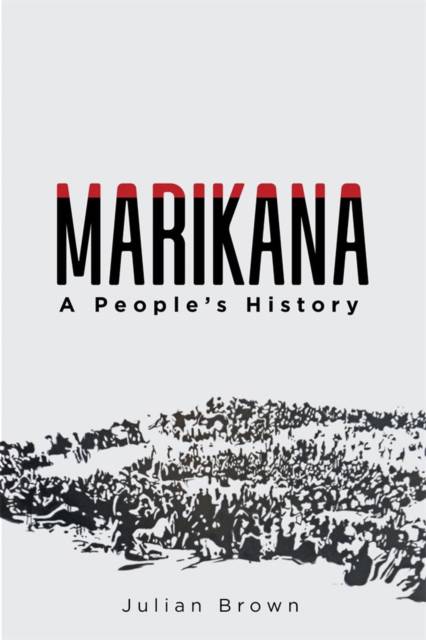
- Retrait gratuit dans votre magasin Club
- 7.000.000 titres dans notre catalogue
- Payer en toute sécurité
- Toujours un magasin près de chez vous
- Retrait gratuit dans votre magasin Club
- 7.000.0000 titres dans notre catalogue
- Payer en toute sécurité
- Toujours un magasin près de chez vous
Description
In-depth account of the Marikana massacre, based on the voices of the miners and their families themselves, from the build up to the strike to attempts to hold the state to account and its lasting significance. In August 2012 the South African police - at the encouragement of mining capital, and with the support of the political state - intervened to end a week-long strike at the Lonmin platinum mine in Marikana, in South Africa's NorthWest Province. On the afternoon of Thursday, 16 August, the police shot and killed 34 men. Hundreds more were injured, some shot as they fled. None posed a threat to any police officer. Recognised by many as an event of international significance in stories of global politics and labour relations, the perspectives of the miners has however been almost missing from published accounts. This book, for the first time, brings into focus the mens' lives - and deaths - telling the stories of those who embarked on the strike, those who were killed, and of the family members who have survived to fight for the memories of their loved ones. It places the strike in the context of South Africa's long history of racial and economic exclusion, explaining how the miners came to be in Marikana, how their lives were ordinarily lived, and the substance of their complaints. It shows how the strike developed from an initial gathering into a mass movement of more than 3,000 workers. It discusses the violence of the strike and explores the political context of the state's response, and the eagerness of the police to collaborate in suppressing the strike. Recounting the events of the massacre in unprecedented detail, the book sets out how each miner died and everything we know about the police operation. Finally, Brown traces the aftermath: the attempts of the families of the deceased to identify and bury their dead, and then the state's attempts to spin a narrative that placed all blame on the miners; the subsequent Commission of Inquiry - and its failure to resolve any real issues; and the solidarity politics that have emerged since. Southern Africa (South Africa, Namibia, Lesotho, Swaziland and Botswana): Jacana.
Spécifications
Parties prenantes
- Auteur(s) :
- Editeur:
Contenu
- Nombre de pages :
- 282
- Langue:
- Anglais
Caractéristiques
- EAN:
- 9781847012845
- Date de parution :
- 21-01-22
- Format:
- Livre relié
- Format numérique:
- Genaaid
- Dimensions :
- 155 mm x 239 mm
- Poids :
- 612 g

Les avis
Nous publions uniquement les avis qui respectent les conditions requises. Consultez nos conditions pour les avis.






